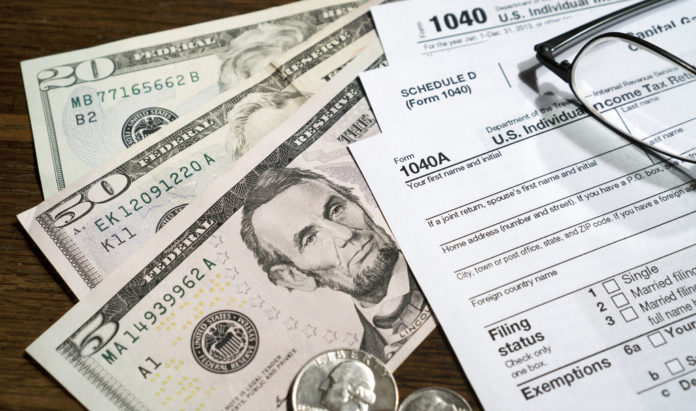Progressive groups that convinced voters last year to raise taxes on the wealthy to boost school funding have filed paperwork to block big new tax cuts enacted by the Republican-controlled Arizona Legislature and signed by GOP Gov. Doug Ducey this week.
The groups filed a pair of voter referendums Friday with the Secretary of State’s office, said David Lujan, a former Democratic lawmaker who leads the group Stand for Children.
The groups now have 90 days to collect the nearly 120,000 signatures required to put the big tax cuts on hold until voters can weigh in on November 2022. They are also expected to try to block a measure Ducey has yet to sign that creates a new small business tax category that will be exempt from the 3.5% surcharge on the wealthy voters approved last November.
Lujan said the tax cuts favor the rich and would cut almost $2 billion annually from revenue the state could use to boost school funding and other priorities.
“That’s revenue that we think instead should be going to our public schools, going to help provide health care for children, affordable housing resources, all sorts of priorities that have been underfunded for years,” Lujan said. “Instead of investing in those things, they are attempting to give huge tax cuts to the rich, which is just disastrous for our future.”
The Arizona Constitution allows voters to repeal any law passed by the Legislature at the ballot box by collecting signatures from 5% of the people who voted in the last general election. If the signatures are certified, the law is placed on hold until the next general election.
Ducey hailed the budget package he signed Wednesday for enacting historic tax cuts that will give tax relief to all Arizonans and help keep the state tax structure competitive. He had railed about the surcharge in Proposition 208 in March, telling a business group he hoped the courts or the Legislature would gut it.
C.J. Karamargin, the governor’s spokesman, said it remains to be seen if the opponents of the tax cuts can gather the needed signatures.
“But the legislation that they seem to be targeting is part of the accomplishments of one of the most successful Arizona Legislatures in recent memory,” Karamargin said. ”Why anyone would want to overturn that, I guess you’d have to ask them.”
The state budget Ducey signed Wednesday phases in a flat tax of 2.5% for nearly everyone, eliminating the state’s progressive taxation system that ranged from 2.59% for the first roughly $54,000 of income to 4.5% for income above about $327,000.
Democrats said most taxpayers will see very little from the tax cut, while the wealthiest will reap a massive windfall.
The average Arizona resident earning between $75,000 and $100,000 will save $231 a year in state income taxes, while the average taxpayer earning between $500,000 and $1 million a year will save more than $12,000, according to the Legislature’s budget analysts.
High-income taxpayers affected by Proposition 208, an initiative approved by voters last year to impose a 3.5% tax surcharge on the wealthy to boost salaries for teachers and other school employees, will continue to pay 4.5%. That essentially eliminates the impact of the Proposition 208 tax increase, which would have raised the top tax rate to 8%.
Those tax cuts and the 4.5% cap are in separate budget bills, requiring opponents to file two separate referendums.
Lujan said the coalition of progressive groups will also file a third referendum targeting a bill to further shield some of those high-income taxpayers from Proposition 208 by excluding income from estates, trusts and business profits from the surcharge. They have to wait until Ducey signs it, which is expected. Proposition 208 applied to income above $250,000 for individuals and $500,000 for couples.
Lujan said the groups backing the referendum include the Arizona Education Association teachers union, Children’s Action Alliance, Center for Economic Progress and Arizona Interfaith Network. Also involved are Save Our Schools, Arizona, which organized in early 2017 to oppose and successfully refer to the ballot a new universal school voucher law, and a large number of health advocates and community groups.
“I think you can expect to see quite a big coalition,” Lujan said.
___
This story was first published on July 2, 2021. It was updated on July 5, 2021 to correct that the group Save Our Schools, Arizona organized in early 2017 to oppose and successfully refer to the ballot a new universal school voucher law, not in 2018 after a statewide teacher strike.
Republished with the permission of the Associated Press.














